Health Care > QUESTIONS & ANSWERS > IHI PS 103 Questions and Correct Answers Passed With 98% (All)
IHI PS 103 Questions and Correct Answers Passed With 98%
Document Content and Description Below
IHI PS 103 Questions and Correct Answers Passed With 98% Human factors is the study of: (A) Interactions among humans (B) Interactions between humans and machines (C) Interactions between hum... ans and the environment (D) All of the above -✔✔ (D) All of the above Which of the following is an example of unconscious processing by the brain? (A) Optical illusions (B) Skipping a step on a checklist to save time (C) Mistaking one drug for another because of look-alike packages (D) A and C -✔✔ (D) A and C When attempting to decrease the risk of error, it's important to use human factors principles because: (A) If you understand the factors that cause people to make mistakes, you can hire safer providers. (B) If you understand human factors principles, you can ensure your system is perfectly safe. (C) If you understand the factors that affect human performance on critical tasks, you can design a safer system. (D) If you understand human factors principles, you can always justify using the latest technology at the bedside. -✔✔ C) If you understand the factors that affect human performance on critical tasks, you can design a safer system. You visit the local convenience store looking for a refreshing drink on a pleasant day. You know that you want a new type of cola beverage you've heard advertised on the radio, and reach into the refrigerator for what you think is the caffeine-free version of that cola. After you pay, pop the can, and begin drinking, you find that you purchased the sugar-free version instead (whoops!). What most likely contributed to this error? (A) Look-alike cans/labels (B) The ad on the radio (C) The cost of the beverage (D) The weather outside -✔✔ (A) Look-alike cans/labels At the end of a double shift, an experienced nurse with an excellent track record gives a medication to the wrong patient. Based on human factors principles, what would you guess was the biggest contributor to this error? (A) The nurse's training was out-of-date. (B) The nurse was prone to error because she was tired. (C) The nurse had become complacent and stopped trying hard. (D) The nurse deliberately ignored protocol. -✔✔ (C) The nurse had become complacent and stopped trying hard. Human factors is the study of: (A) All the factors that cause humans to make errors (B) All the factors that make it easier to do work in the right way (C) All the factors that differentiate humans from other species (D) A and B -✔✔ (B) All the factors that make it easier to do work in the right way Which of the following factors can increase human risk for error? (A) Predisposing mental and physiological states (e.g., fatigue, stress, dehydration, hunger, and boredom) (B) Factors that directly enable decision making (e.g., perception, attention, memory, reasoning, and judgment) (C) Factors that directly enable decision execution (e.g., communication and being able to carry out the intended action) (D) All of the above -✔✔ (D) All of the above At the end of a double shift, an experienced nurse with an excellent track record gives a medication to the wrong patient. Based on human factors principles, what would you recommend as the best way to prevent the same error from recurring? (A) Ensuring staff training is up-to-date (B) Incentivizing nursing staff to remain vigilant (C) Improving medication administration processes (D) A and B -✔✔ (C) Improving medication administration processes [Show More]
Last updated: 2 years ago
Preview 1 out of 7 pages

Buy this document to get the full access instantly
Instant Download Access after purchase
Buy NowInstant download
We Accept:

Reviews( 0 )
$8.00
Can't find what you want? Try our AI powered Search
Document information
Connected school, study & course
About the document
Uploaded On
Jan 31, 2023
Number of pages
7
Written in
Additional information
This document has been written for:
Uploaded
Jan 31, 2023
Downloads
0
Views
123



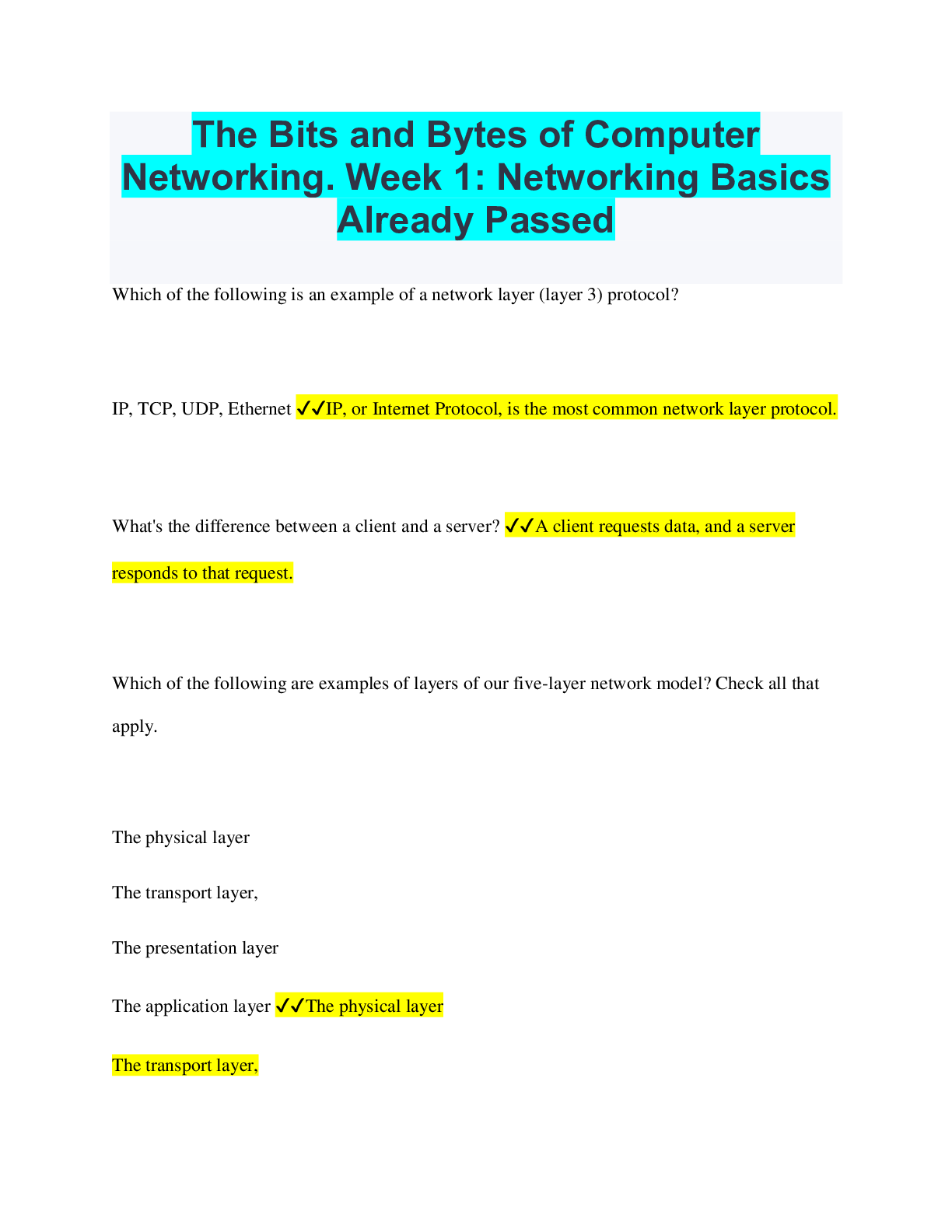
 Answered 2023.png)


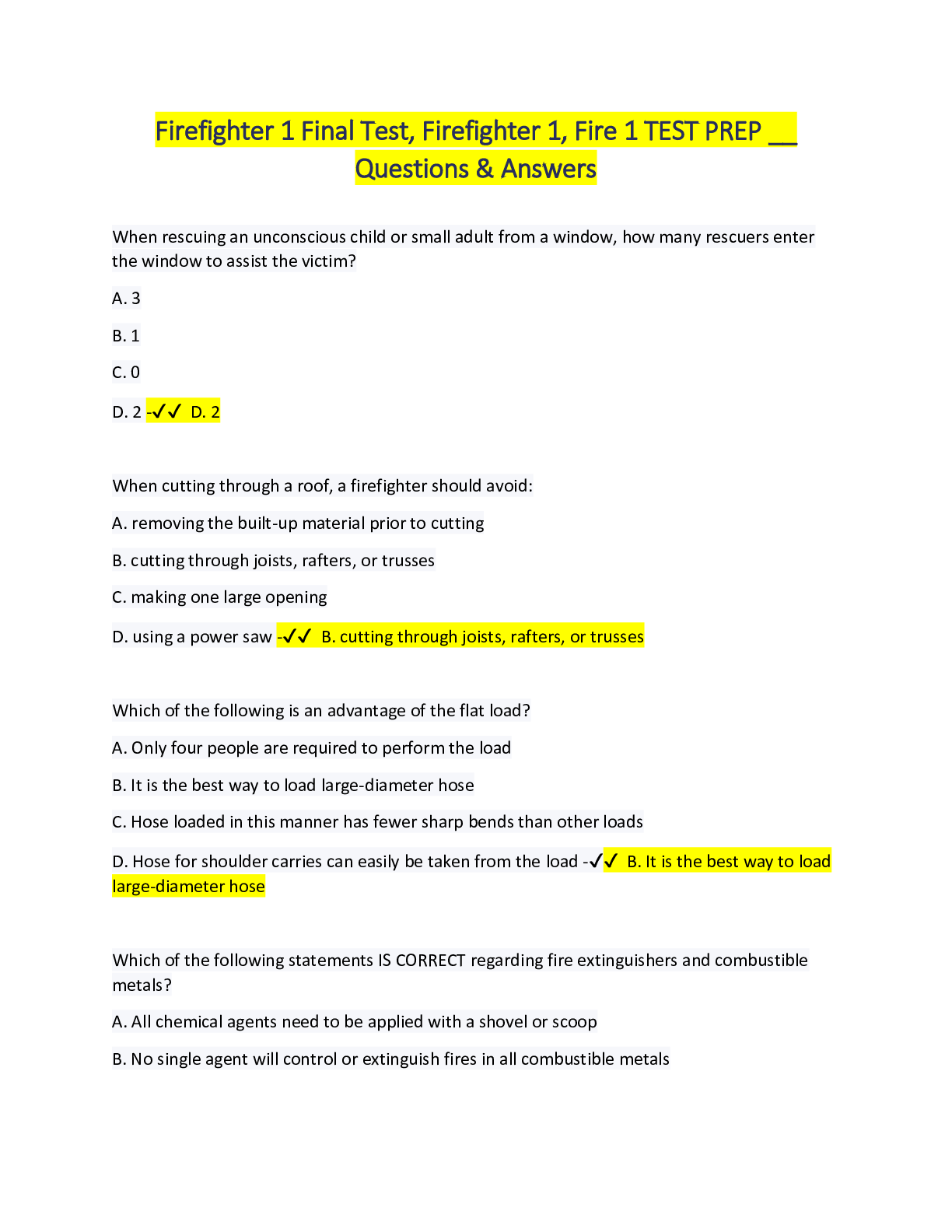
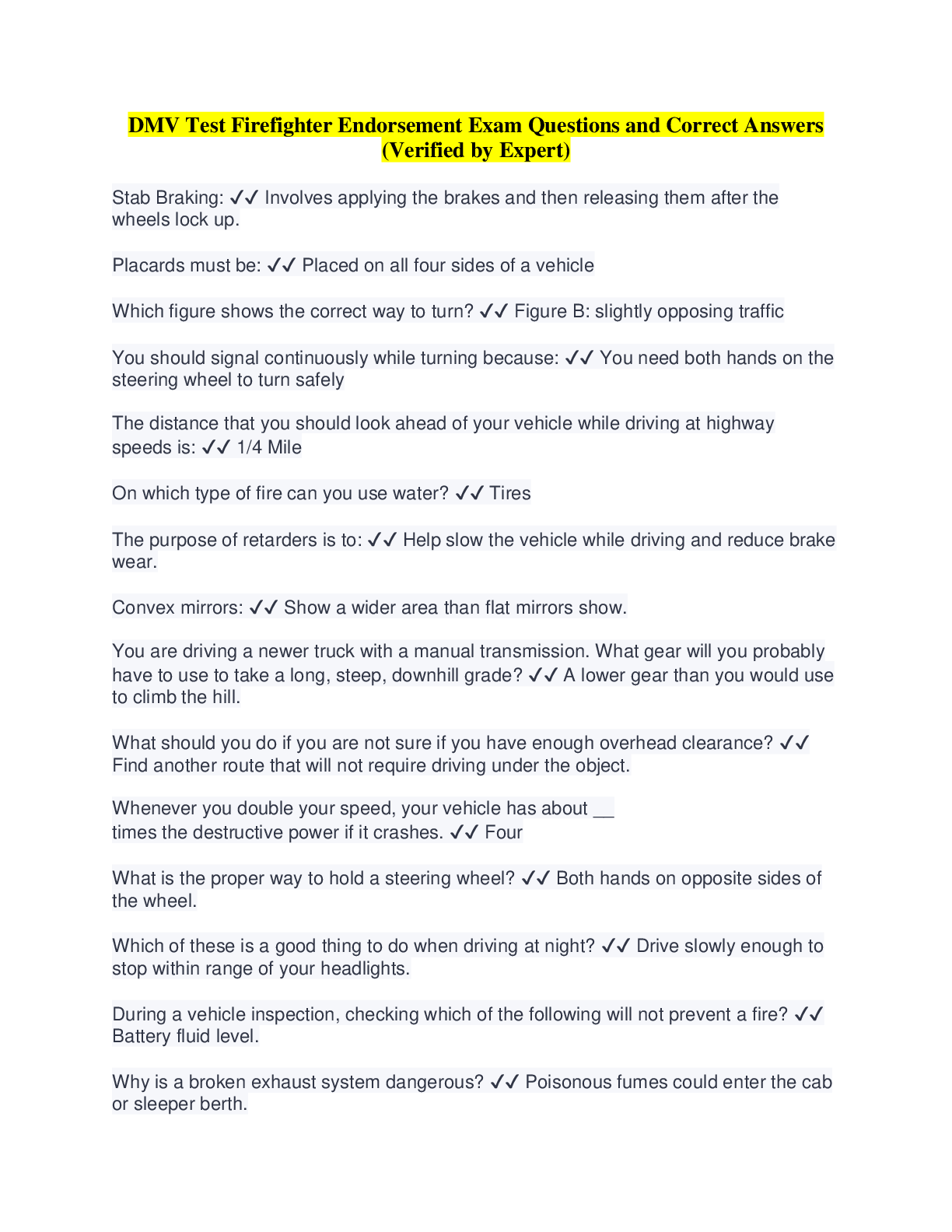


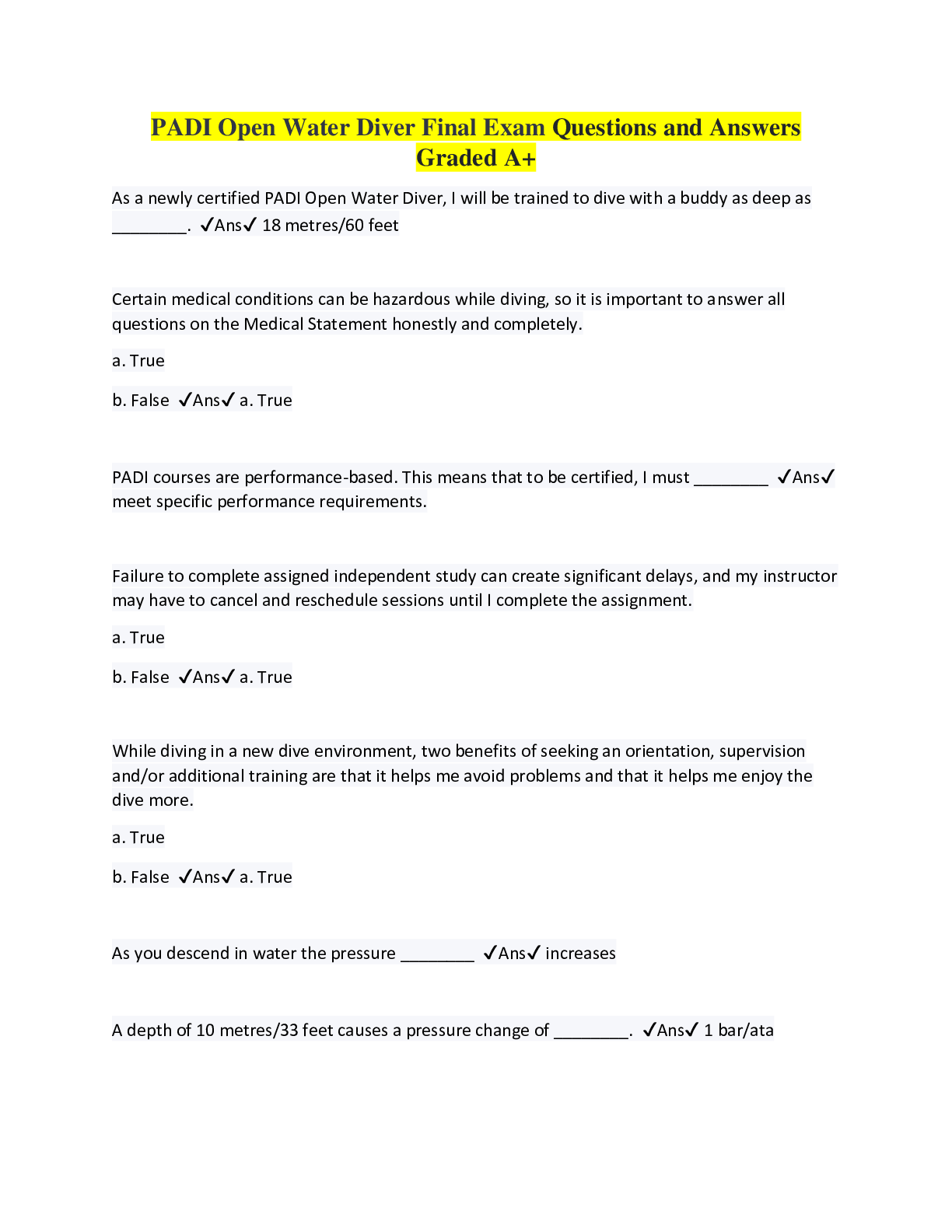



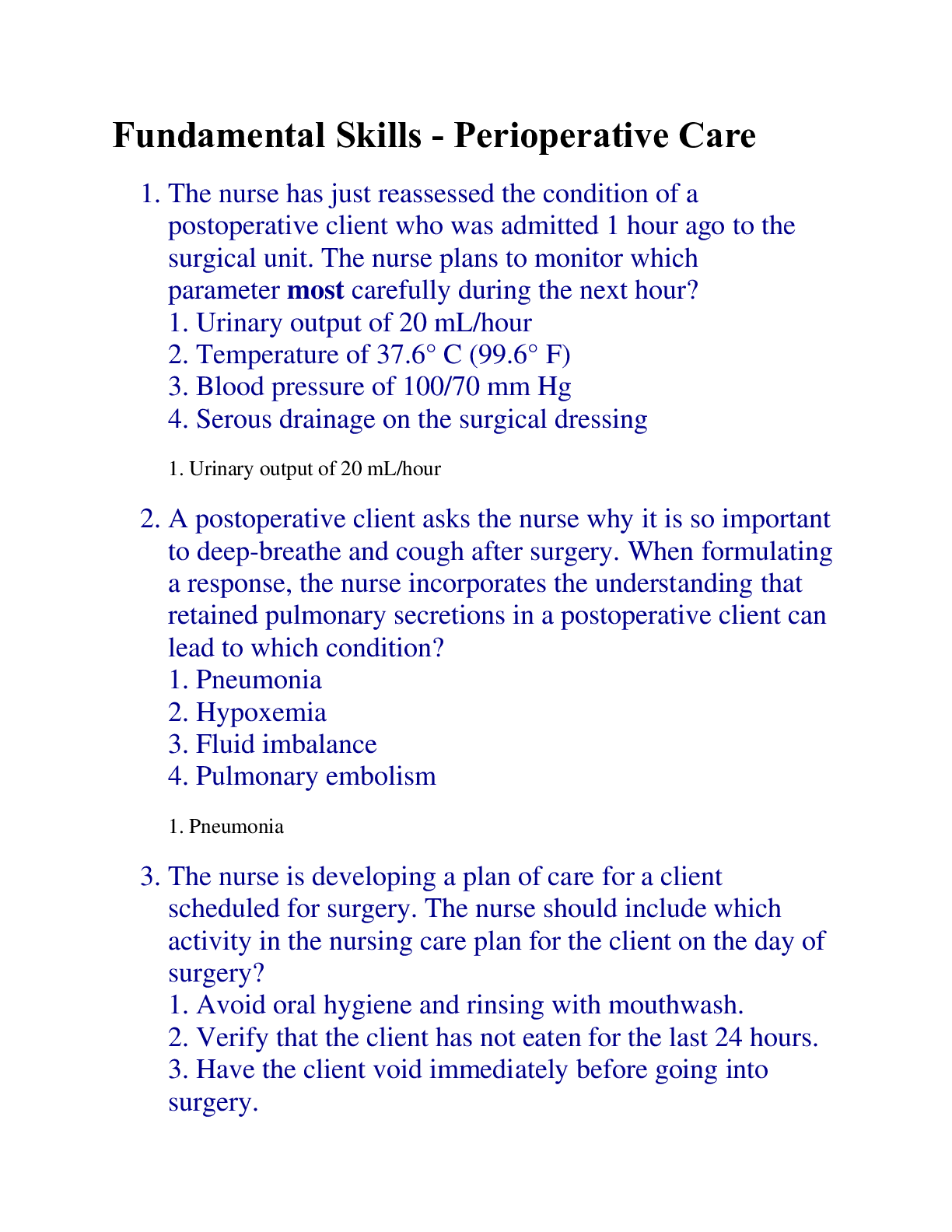
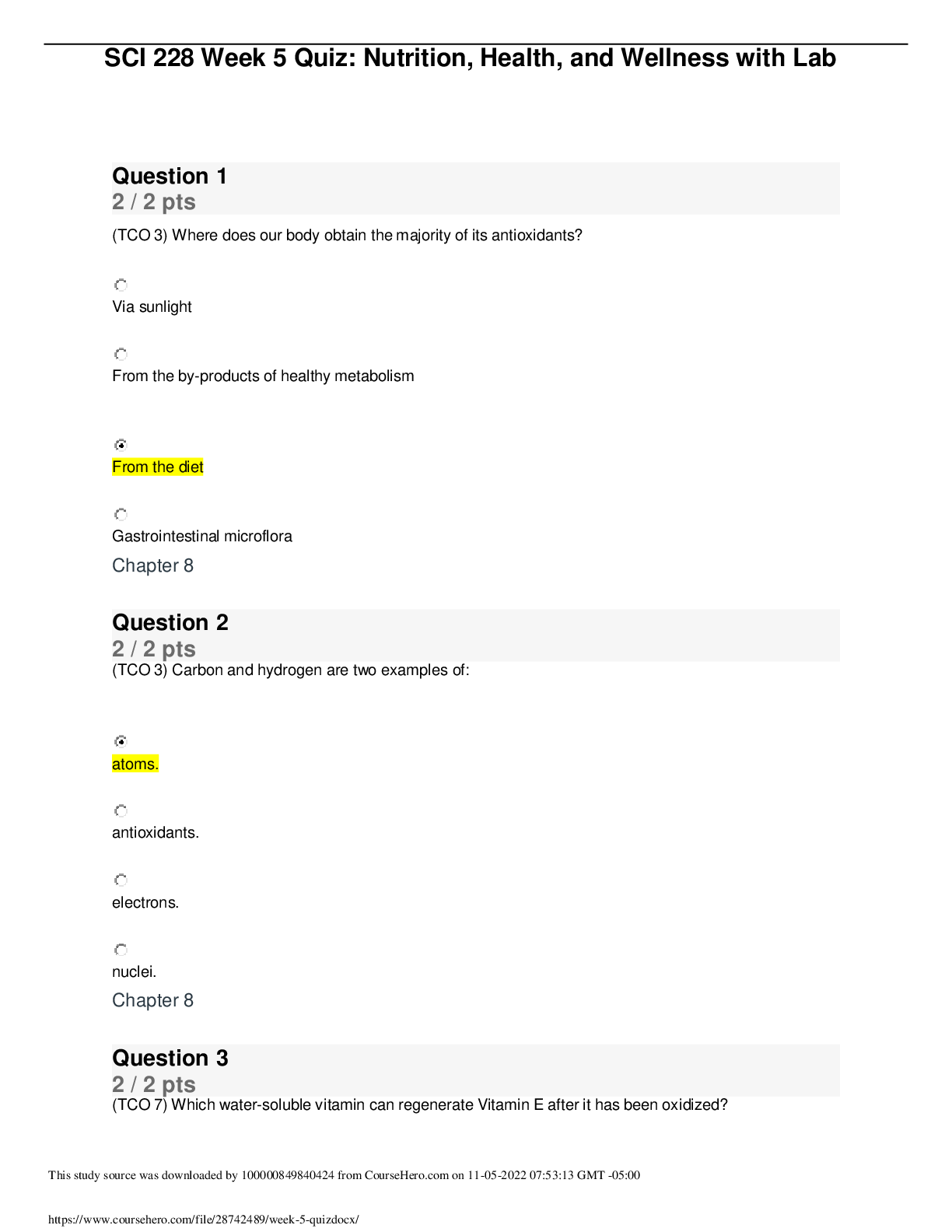
.png)
.png)
.png)
.png)
.png)
.png)
.png)

